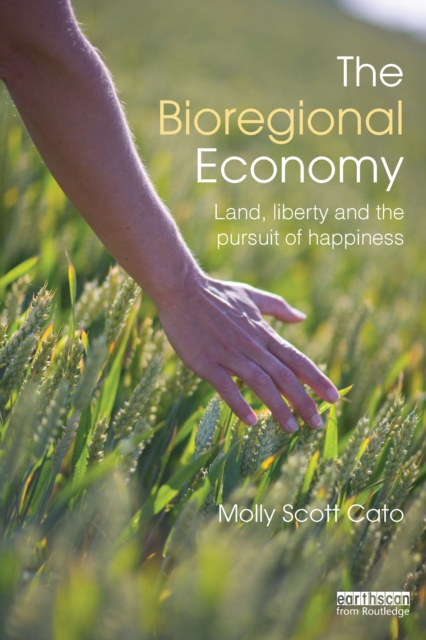
The Bioregional Economy : Land, Liberty and the Pursuit of Happiness PDF
by Molly Scott Cato
Description
In a world of climate change and declining oil supplies, what is the plan for the provisioning of resources? Green economists suggest a need to replace the globalised economy, and its extended supply chains, with a more 'local' economy. But what does this mean in more concrete terms? How large is a local economy, how self-reliant can it be, and what resources will still need to be imported? The concept of the 'bioregion' - developed and popularised within the disciplines of earth sciences, biosciences and planning - may facilitate the reconceptualisation of the global economy as a system of largely self-sufficient local economies.
A bioregional approach to economics assumes a different system of values to that which dominates neoclassical economics. The global economy is driven by growth, and the consumption ethic that matches this is one of expansion in range and quantity. Goods are defined as scarce, and access to them is a process based on competition. The bioregional approach challenges every aspect of that value system. It seeks a new ethic of consumption that prioritises locality, accountability and conviviality in the place of expansion and profit; it proposes a shift in the focus of the economy away from profits and towards provisioning; and it assumes a radical reorientation of work from employment towards livelihood.
This book by leading green economist Molly Scott Cato sets out a visionary and yet rigorous account of what a bioregional approach to the economy would mean - and how to get there from here.
Information
-
Download - Immediately Available
- Format:PDF
- Pages:272 pages
- Publisher:Taylor & Francis
- Publication Date:27/11/2012
- Category:
- ISBN:9781136181740
Other Formats
- Paperback / softback from £42.45
- EPUB from £38.69
- Hardback from £135.00
Information
-
Download - Immediately Available
- Format:PDF
- Pages:272 pages
- Publisher:Taylor & Francis
- Publication Date:27/11/2012
- Category:
- ISBN:9781136181740






